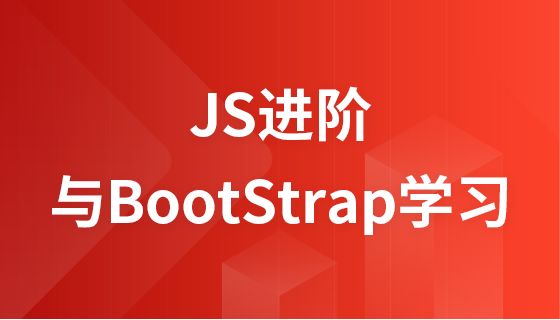
本文深入探讨了 go 语言中基于 mgo 库构建应用时,如何有效处理数据库连接池和 tcp 超时问题。我们将重点分析“read tcp i/o timeout”错误的原因、诊断方法,并提供一套系统的解决方案,包括合理的超时配置、mgo 会话的刷新与重建机制,以及数据库性能优化策略,旨在帮助开发者构建更稳定、高效的 go 应用。
在 Go 语言中,使用 Mgo 库与 MongoDB 交互是常见的实践。然而,在构建 JSON REST API 服务器这类高并发应用时,开发者可能会遇到“read tcp
Mgo 库通过会话(Session)来管理与 MongoDB 的连接。通常,我们会创建一个主会话(master session),然后通过 session.Copy() 方法获取其副本(copy session)供每个请求或 goroutine 使用。Mgo 内部维护着一个连接池,主会话负责管理这个连接池,而副本会话则从池中获取连接来执行数据库操作。当一个副本会话完成其任务后,通过调用 session.Close() 方法,它所使用的连接会返回到连接池中,供其他会话复用。
当出现“read tcp i/o timeout”错误时,Mgo 会话会检测到网络层面的问题,并标记该会话为失效。重要的是,这并不意味着整个连接池或 Mgo 库本身出现了问题,仅仅是特定的会话在执行某个操作时遇到了瓶颈。
遇到“read tcp i/o timeout”错误时,首先需要明确其根本原因。简单地增加超时时间可能暂时解决问题,但如果底层存在性能瓶颈,问题仍会反复出现。常见的原因包括:
Mgo 允许在拨号连接和会话级别配置超时时间。适当增加这些超时可以为数据库操作提供更充足的时间,但需注意,过长的超时可能导致请求长时间阻塞。
示例代码:配置 Mgo 超时
package main
import (
"fmt"
"log"
"time"
"gopkg.in/mgo.v2"
)
// Global session variable for master session
var globalSession *mgo.Session
func init() {
// Define Mgo DialInfo with custom timeouts
dialInfo := &mgo.DialInfo{
Addrs: []string{"localhost:27017"}, // MongoDB server address
Timeout: 10 * time.Second, // Dial timeout (initial connection)
Database: "mydb", // Optional: default database
Username: "myuser", // Optional: username
Password: "mypassword", // Optional: password
}
// Establish the master session
var err error
globalSession, err = mgo.DialWithInfo(dialInfo)
if err != nil {
log.Fatalf("Failed to connect to MongoDB: %v", err)
}
// Set a socket timeout for the master session (applies to all copies by default)
// This timeout applies to individual read/write operations on the socket.
globalSession.SetSocketTimeout(30 * time.Second) // Set socket timeout to 30 seconds
// Optional: Set a sync timeout for write operations requiring acknowledgement
// globalSession.SetSyncTimeout(15 * time.Second)
// Set mode to Monotonic for read consistency in replica sets
globalSession.SetMode(mgo.Monotonic, true)
fmt.Println("MongoDB master session initialized successfully.")
}
// GetSession returns a copy of the master session
func GetSession() *mgo.Session {
return globalSession.Copy()
}
func main() {
// Example usage in a request handler or background job
session := GetSession()
defer session.Close() // Always close session copies!
c := session.DB("mydb").C("mycollection")
// Example: Insert a document
err := c.Insert(map[string]string{"name": "Test Document", "status": "active"})
if err != nil {
if mgo.Is );
}
}在上述代码中,mgo.DialInfo.Timeout 设置了连接超时,而 session.SetSocketTimeout() 则设置了套接字操作的超时。根据应用程序的实际需求和网络环境,调整这些值。
当一个 Mgo 会话报告超时错误时,它通常处于一个不确定状态。此时,不应继续使用该会话。有两种主要的恢复策略:
刷新会话 (session.Refresh()): 对于一些瞬时错误,可以尝试调用 session.Refresh()。这会尝试清理会话的内部状态,并使其能够重新使用连接池中的连接。然而,对于持续性的 TCP 超时,Refresh() 可能不足以解决问题。
关闭并重新创建会话: 这是更稳妥的方案。当一个会话出现超时错误时,应立即调用 session.Close() 释放该会话及其可能持有的问题连接(虽然 Mgo 连接池会自行处理连接健康状况),然后从主会话重新 Copy() 一个新的会话。这确保了后续操作在一个全新的、健康的会话上进行。
示例代码:处理会话错误与重建
package main
import (
"fmt"
"log"
"time"
"gopkg.in/mgo.v2"
)
var masterSession *mgo.Session
func init() {
// Assume masterSession is initialized as in the previous example
dialInfo := &mgo.DialInfo{
Addrs: []string{"localhost:27017"},
Timeout: 10 * time.Second,
}
var err error
masterSession, err = mgo.DialWithInfo(dialInfo)
if err != nil {
log.Fatalf("Failed to connect to MongoDB: %v", err)
}
masterSession.SetSocketTimeout(30 * time.Second)
masterSession.SetMode(mgo.Monotonic, true)
fmt.Println("Master session initialized.")
}
// performDBOperation safely performs a database operation, handling potential session errors.
func performDBOperation(operation func(*mgo.Collection) error) error {
session := masterSession.Copy()
defer session.Close() // Ensure session is closed
c := session.DB("mydb").C("mycollection")
err := operation(c)
if err != nil {
// Check for specific Mgo errors indicating a bad session/connection
if mgo.Is (err) || mgo.Is (err) {
log.Printf("Session error detected: %v. Attempting to refresh session...", err)
// Option 1: Try to refresh the session (less aggressive)
// session.Refresh() // Refresh might not be enough for TCP timeouts
// Option 2: Re-copy a new session from the master (more robust)
// For a single operation, simply returning the error and letting the caller get a new session is common.
// If this were a long-lived session in a specific context, one might try to re-copy here.
// For web requests, usually the current request fails, and the next request gets a fresh session.
return fmt.Errorf("database session became invalid, please retry: %w", err)
}
return err // Other errors
}
return nil
}
func main() {
// Example usage
err := performDBOperation(func(c *mgo.Collection) error {
// Simulate a slow query or timeout scenario
// For actual timeout, you'd see "read tcp ... i/o timeout"
return c.Insert(map[string]string{"data": fmt.Sprintf("value-%d", time.Now().UnixNano())})
})
if err != nil {
fmt.Printf("Operation failed: %v\n", err)
// If the error indicates a session issue, subsequent requests will automatically get a new session.
} else {
fmt.Println("Operation successful.")
}
// It's crucial to ensure the master session is closed when the application shuts down
// In a real application, this would be handled by a graceful shutdown mechanism.
defer masterSession.Close()
}注意事项:
解决超时的根本方法往往在于优化数据库操作本身:
“read tcp i/o timeout”错误是 Go Mgo 应用中常见的挑战,但通过系统的诊断和应对策略,可以有效解决。核心在于理解 Mgo 会话和连接池的工作原理,合理配置超时时间,并在会话出现问题时进行正确的刷新或重建。更重要的是,通过持续的数据库性能监控和优化,从根本上减少慢查询和网络瓶颈,从而构建出更健壮、响应更迅速的 Go 应用程序。同时,始终推荐使用最新稳定版本的 Mgo 库,以受益于已修复的潜在问题和性能改进。
以上就是Go Mgo 应用中连接池与 TCP 超时处理的最佳实践的详细内容,更多请关注php中文网其它相关文章!

每个人都需要一台速度更快、更稳定的 PC。随着时间的推移,垃圾文件、旧注册表数据和不必要的后台进程会占用资源并降低性能。幸运的是,许多工具可以让 Windows 保持平稳运行。




Copyright 2014-2025 https://www.php.cn/ All Rights Reserved | php.cn | 湘ICP备2023035733号